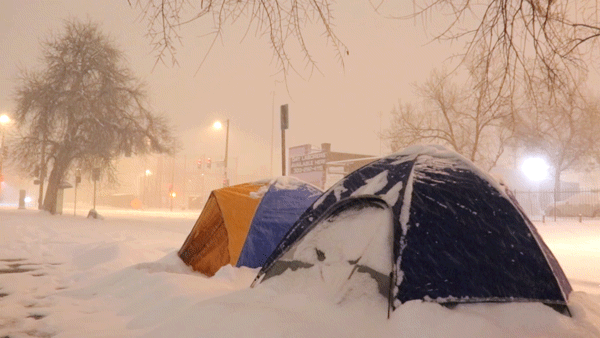
Denver's 45-person homelessness commission will dissolve and reconvene later this summer as a smaller but more representative group.
At least a quarter of the members of the new commission will be people who have experienced or are currently experiencing homelessness, city officials said. Another quarter of the members will represent service providers.
"One of the criticisms the city has heard for many years was a lack of representation from people who have experienced homelessness," Denver Human Services spokeswoman Julie Smith said.
"One of the things we talked about was being inclusive and being representative of the communities we serve. ... It's really important that we understand that the landscape of homelessness has changed. Three out of four homeless people work, and that's something that has changed even in the last five years."
When Denver's homelessness commission was formed in 2003, its focus was on reducing chronic homelessness, Smith said.
First during the recession and then as the recovery brought rising housing costs, more people with jobs, more women, more families and more seniors have joined the ranks of the homeless. These people often have different needs and different barriers to regaining housing than people who make up the "chronically homeless" population.
The new commission will be smaller -- most likely around 20 people. In addition to the service providers and people with first-hand experience of homelessness, the commission will include representatives of neighborhoods, businesses, regional entities and interfaith groups. Representatives of the relevant city departments will continue to attend and work with the commission, but they won't have any voting roles.
The new commission also will include four subcommittees -- focus areas still to be determined -- and ad-hoc work groups to tackle more complicated or more urgent topics.
The commission will report to the Office of HOPE, which in turn reports to Mayor Michael Hancock. The city expects the reorganization process to take about two months.












